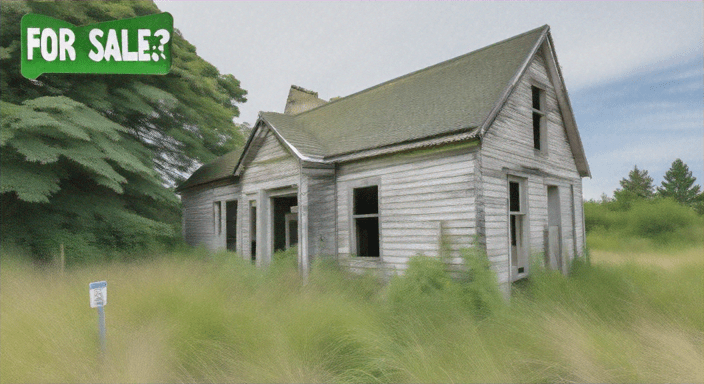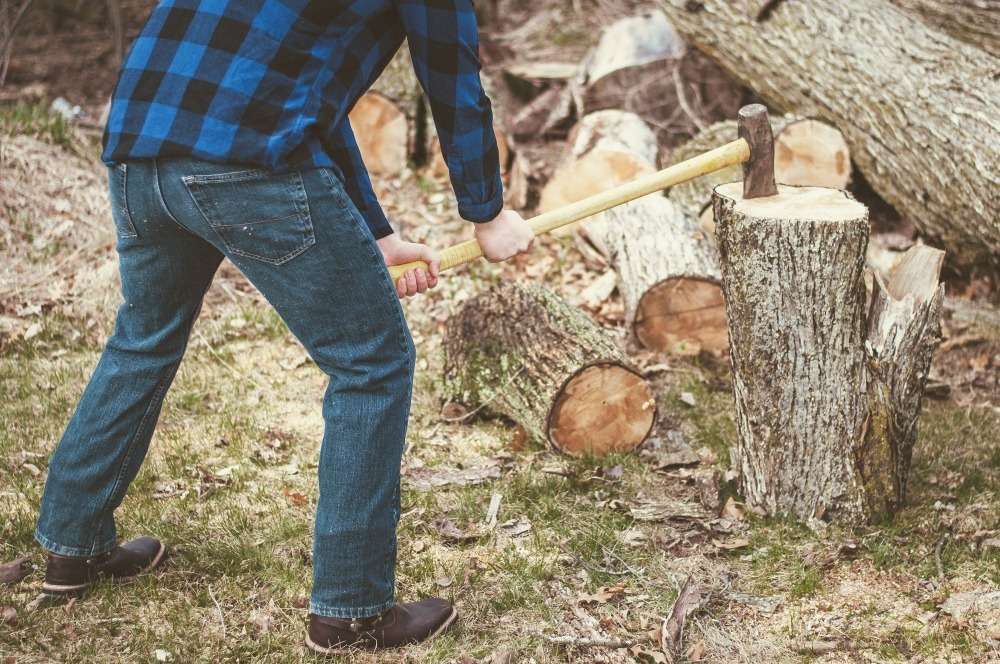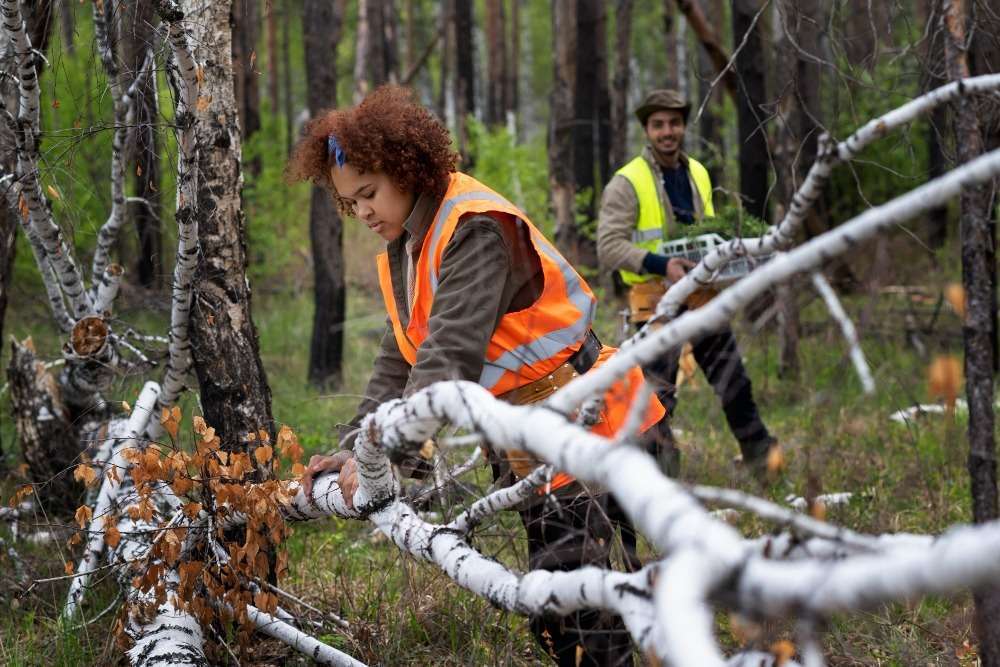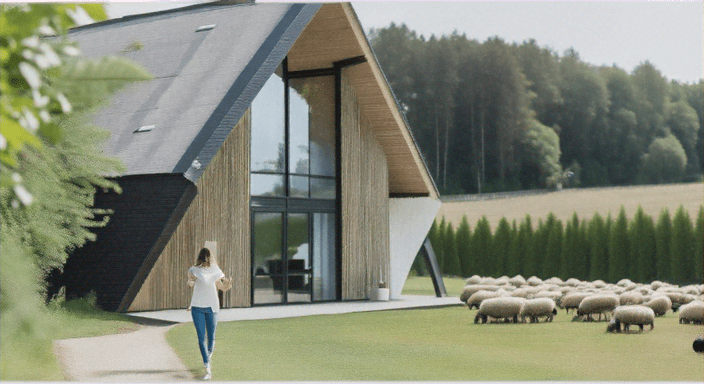Those contemplating the acquisition of derelict homes need to meticulously evaluate the associated risks. This guide elucidates the primary hazards, ranging from concealed structural defects to legal entanglements, and proffers pragmatic strategies to effectively mitigate them.
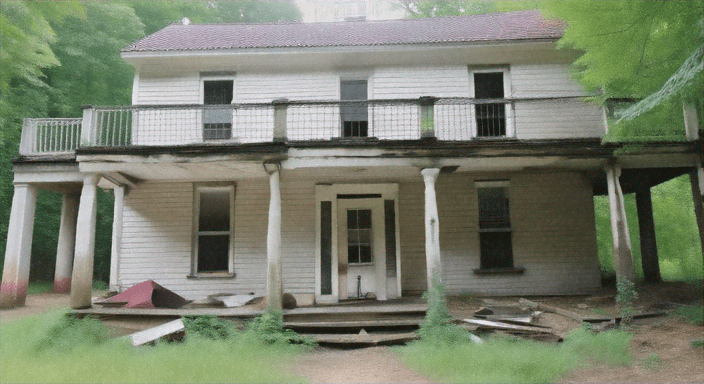
1. Structural and Maintenance Risks
Risk: Derelict properties frequently suffer from prolonged neglect, resulting in grave structural and maintenance predicaments. For seniors, grappling with unforeseen repair expenses or perilous living conditions can be both burdensome and costly.
-
Foundation and Structural Issues: Homes neglected for extended periods often exhibit foundation cracks, roof leaks, or precarious walls. These remediations can be exorbitant, sometimes surpassing tens of thousands of dollars.
-
Plumbing and Electrical Failures: Compromised or antiquated plumbing and wiring can substantially augment renovation expenditures. Defective systems may culminate in water damage or electrical perils.
-
Pests and Mold: Vacant domiciles are prone to pest invasions and mold proliferation, which can impair the structure and engender health hazards.
Solution:
-
Hire a Professional Inspector: Always commission a comprehensive inspection by a licensed inspector. They will scrutinize for concealed structural, electrical, and plumbing issues, furnishing a lucid comprehension of requisite repairs prior to purchase.
-
Budget for Repairs: Incorporate the cost of indispensable repairs into your overall budget. It is often judicious to allocate 10-20% of your total budget for unforeseen repairs.
-
Pest and Mold Inspection: Engage a specialist to scrutinize for mold and pests. If these issues are detected, obtain estimates for remediation prior to making any financial commitments.
2. Financial Risks
Risk: Although derelict homes can be procured at diminished prices, unforeseen financial risks can swiftly materialize. Seniors subsisting on fixed incomes must exercise caution regarding renovation and ongoing maintenance costs.
-
Underestimating Renovation Costs: Many seniors underestimate the magnitude and expense of repairs. A home necessitating minor cosmetic fixes may actually demand extensive plumbing, electrical, or foundation work.
-
Ongoing Maintenance: Even post initial repairs, aged homes often require frequent maintenance, from roof repairs to HVAC replacements, which can accrue over time.
-
Financing Issues: Certain lenders are reticent to finance derelict properties due to their condition, circumscribing loan options for seniors.
Solution:
-
Get a Detailed Estimate: Collaborate with a contractor to procure an accurate renovation cost estimate. Ensure to encompass labor, materials, and any requisite permits.
-
Explore Financing Options: Investigate specialized loans, such as FHA 203(k), which encompasses both the purchase price and renovation costs. Consider liaising with local credit unions that may proffer more pliable terms.
-
Plan for Future Maintenance: Ensure your budget incorporates long-term maintenance costs. If feasible, procure a home warranty that covers essential systems like plumbing and electrical work for the initial few years.
3. Legal and Ownership Complications
Risk: Legal complications, such as ambiguous ownership or unpaid taxes, are prevalent with derelict properties. These issues can defer the purchase process or result in unforeseen financial liabilities.
-
Title Issues: Derelict homes may harbor unresolved ownership issues, especially if they were foreclosed or inherited. This can render it arduous to obtain a clear title.
-
Unpaid Taxes or Liens: Certain properties have outstanding taxes or liens attached, which the buyer would be responsible for settling prior to completing the purchase.
-
Local Zoning and Building Code Violations: The property may not conform to current zoning regulations or building codes, which could lead to fines or the necessity for costly upgrades.
Solution:
-
Conduct a Title Search: Engage a real estate attorney or title company to perform a thorough title search. This will unearth any liens, unpaid taxes, or ownership disputes.
-
Check for Zoning Issues: Verify that the property adheres to local zoning laws and building codes. If there are violations, factor in the cost of resolving these issues prior to purchase.
-
Negotiate with the Seller: If there are legal complications, you may be able to negotiate a reduced price or request the seller to resolve these issues prior to closing.
4. Location Risks: Neighborhood Decline and Accessibility
Risk: Location can significantly influence the desirability and long-term value of a derelict home. Homes in unsafe or declining areas may not appreciate, and properties distant from essential services can engender practical challenges for seniors.
-
Neighborhood Decline: Many derelict homes are situated in areas with diminishing property values, elevated crime rates, or substandard infrastructure. Seniors need to ensure the area is secure and viable for long-term habitation.
-
Access to Healthcare and Services: Rural or underdeveloped areas may not proffer easy access to medical facilities, grocery stores, or public transportation, which are crucial for seniors.
Solution:
-
Research Neighborhood Trends: Prior to purchasing, scrutinize the neighborhood’s real estate market, crime rates, and future development plans. Websites like Zillow and local government resources can furnish helpful data on property values and neighborhood safety.
-
Consider Proximity to Services: Ensure the property is proximate to essential services like hospitals, pharmacies, and grocery stores. If public transportation is significant, confirm that the area has adequate infrastructure for seniors to navigate easily.
-
Revitalizing Areas: Seek out derelict homes in areas undergoing revitalization. These homes may be more economical initially, with potential for property value appreciation as the neighborhood improves.
5. Balancing Risks and Benefits
Risk: While the low cost of derelict homes can be enticing, the risks associated with repairs, legal issues, and neighborhood decline can rapidly outweigh the benefits if not adeptly managed.
Solution:
-
Conduct Thorough Due Diligence: Whether it’s an inspection, title search, or neighborhood evaluation, ensure every facet of the purchase is meticulously examined prior to committing.
-
Work with a Real Estate Agent: An agent versed in derelict properties can help identify risks and opportunities, ensuring you secure the best deal.
-
Plan for Resale Value: Consider the long-term resale value of the property. Buying in a burgeoning or revitalizing area can enhance the likelihood of the home appreciating over time.
Seniors contemplating the purchase of derelict properties must evaluate a multitude of risks, from structural and financial challenges to legal complications. By adopting proactive measures—such as engaging professionals for inspections and legal guidance, budgeting for repairs, and researching the neighborhood—seniors can mitigate these risks and potentially transform a derelict property into a valuable, comfortable abode.

